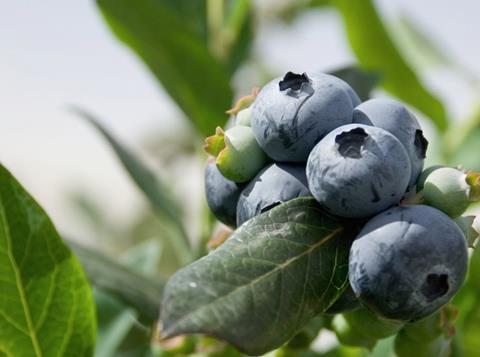A special event held ahead of Fruit Logistica showcased the growth potential for blueberries globally and the advantages Egypt offered the market as a supplier
The role that Egypt can play in producing and supplying blueberries was discussed at a special event hosted by Sekoya in Berlin earlier this month.

Held the day before Fruit Logistica, the meeting brought together growers, Sekoya members, marketers and retailers for presentations on the development of the blueberry business and how Egypt could grow in future.
Hans Liekens, value chain and retail manager at Sekoya Blueberries, highlighted the growth in worldwide consumption of blueberries over the past five years, and pointed out that this was forecast to double again over the next five to seven years.
The market had changed rapidly, he said, with a growing number of producers around the world, while preferred blueberry characteristics had also evolved to, for example, larger, firmer, better-tasting varieties.
Liekens also said that the snacking market would play an important role in the growth of the segment moving forwards.
”The snacking market is four times bigger than the breakfast market,” he explained. ”Today most of the people eat blueberries at breakfast. Imagine if we all started consuming it as a snack?
”What is interesting to see as well is if you position a product as a snack, it’s an opportunity on the market side,” Liekens outlined. ”You can really sell it all year round at a fixed price, which is new in our category as most of the time prices go up and down.”
Egypt’s opportunities
Liekens highlighted the problems caused by phenomenon such as El Nino and other extreme weather events, and how they affected availability.
With supermarkets keen to avoid empty shelves in these scenarios, Egypt had an opportunity to be a key part of the blueberry supply chain’s ‘Plan B’, he said.
The country was attractive as a blueberry source for a number of reasons, including its route to market via accessible shipping lanes.
“The world is defined by shipping routes, and they are so important,” he confirmed. ”Egypt is really well placed to take advantage of high traffic zones all over the world.”
The issue of sustainability was also an important factor when it came to shipping, Liekens said.
”Supermarkets are under pressure for different reasons – price, but also CO2 emissions, sustainability, so they are buying as close to home as possible,” he commented.
”For Egypt this also means really good opportunities in the Middle East as you are growing just around the corner. I think it could be really positive for the region.”
The cost of transport was also an advantage for Egypt, Liekens outlined, compared with other blueberry production regions.
”The boats from from Egypt to Rotterdam are cheaper than the trucks from Morocco to Rotterdam,” he said. ”You don’t have a competitive disadvantage, being an Egyptian here. You have an advantage.”
And with Sekoya offering blueberry cultivars with a good shelf-life that tested well across tasting panels, shipping the fruit in good condition for the end consumer was not a problem.
”I believe these varieties really offer the opportunity for Egypt to operate in a competitive setting,” he added.



